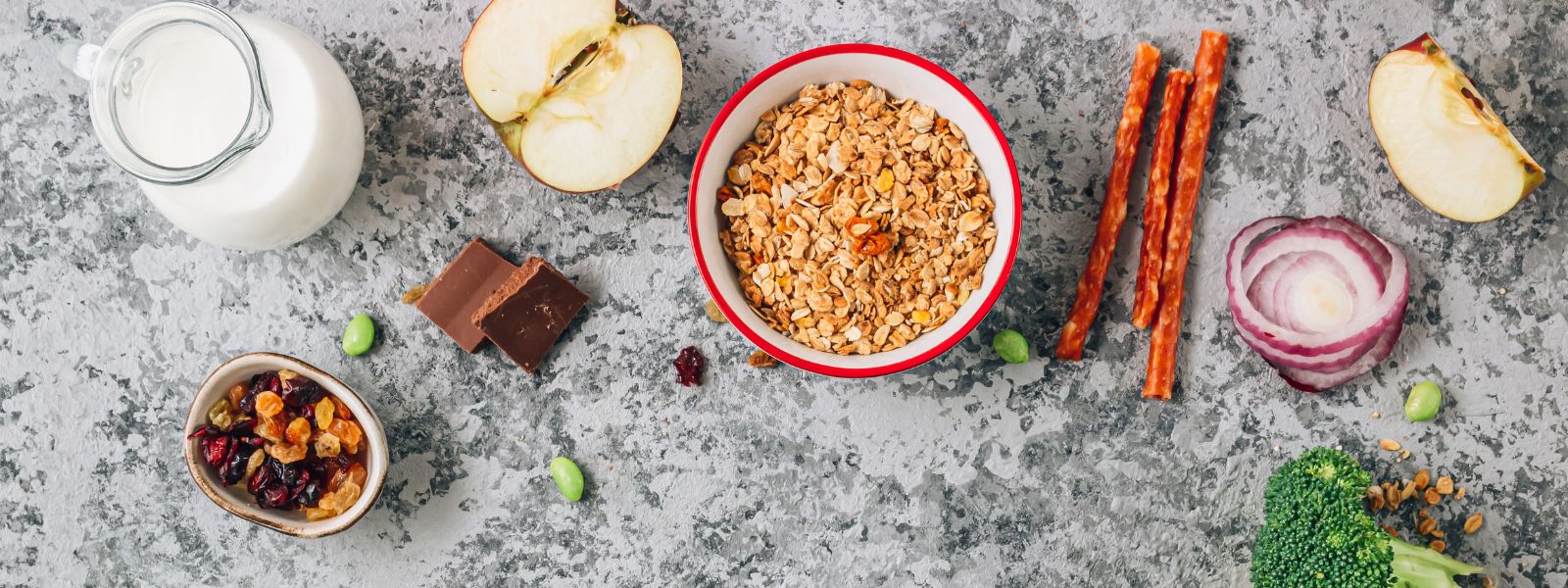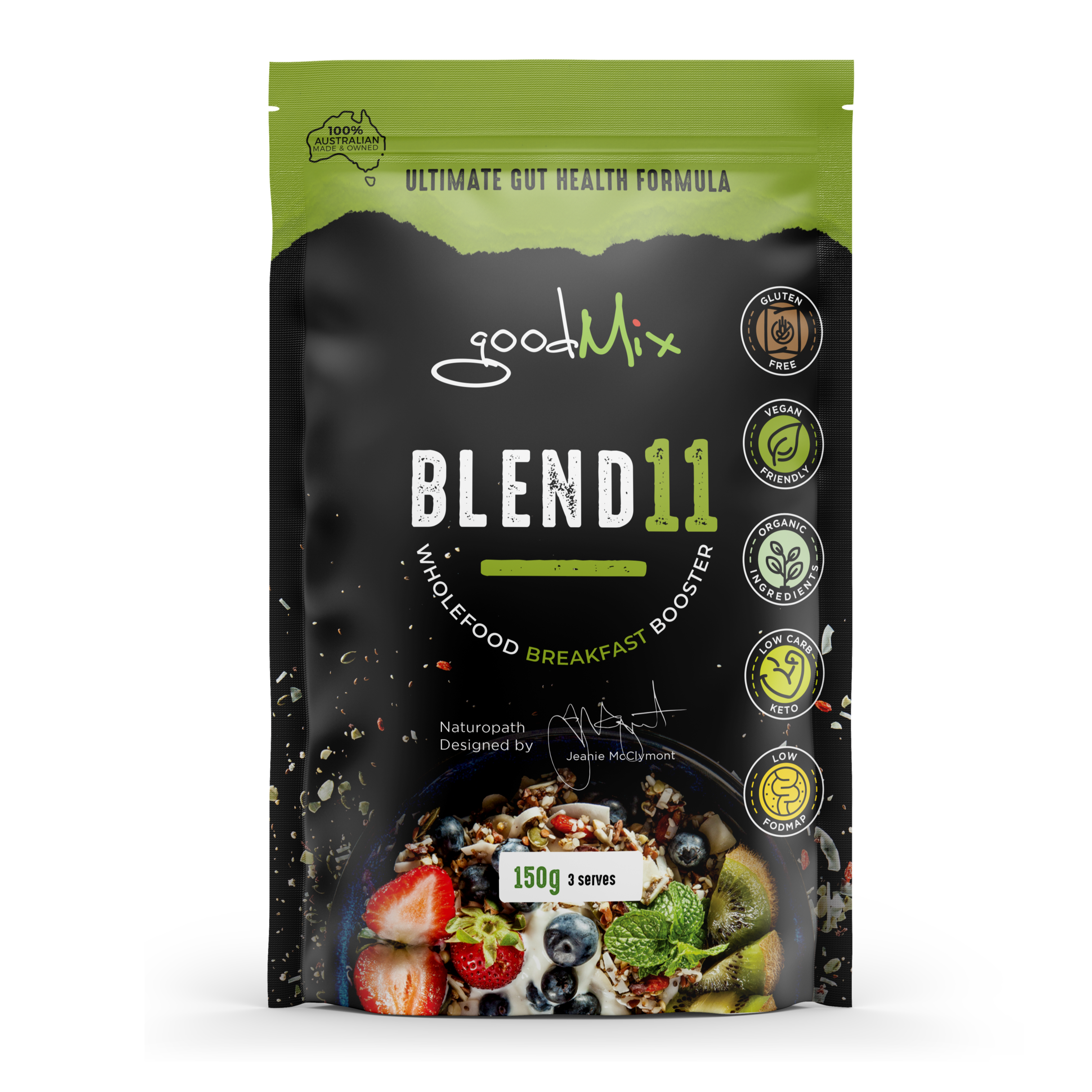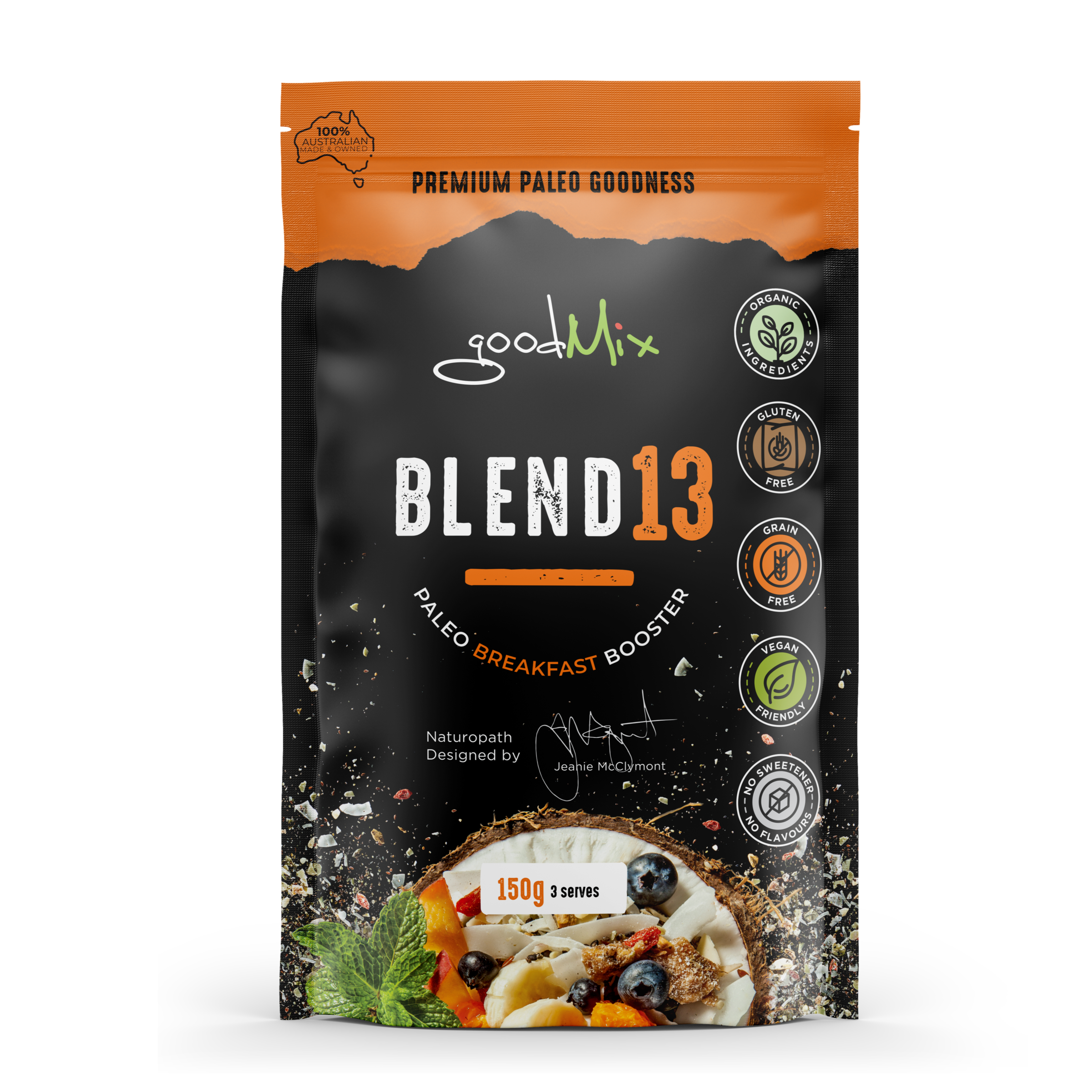
What Does FODMAP Stand For?
What does FODMAP stand for and should I be avoiding FODMAP’S too…?
You might have heard of it but what does FODMAP stand for? And should you consider a low FODMAP diet? Well first you need to know what they are and what they can do - then ask yourself that. You may have had friends telling you they are feeling great on a ‘low FODMAP’ diet. Or you might have seen products springing up in supermarkets claiming to be ‘FODMAP friendly’. Do you need to know how many FODMAPS are in your lunch today? Or can you afford to remain ignorant on this one?
Answer this quiz below to see if you need to be worried about FODMAP's…
Never heard of them…until now, is this just a new dietary trend? A Monash university research team developed the low FODMAP diet in 1999. They have proven, through their research that limiting dietary FODMAPs is an effective treatment for many people with symptoms of IBS. The diet has been published in international medical journals and is now widely recommended as one of the most effective dietary therapies for IBS, go Australia!
What Does FODMAP Stand For?
The word ‘FODMAP’ stands for Fermentable Oligosaccharides, Disaccharides, Monosaccharides and Polyols. It’s basically just an acronym used to remind us of the complex names of a few ‘problem’ carbohydrates that just would not be practical to keep saying you are avoiding, or to write on menus. ‘Excuse me waiter, is this dish free from Fermentable Oligosaccharides, Disaccharides, Monosaccharides & Polyols?’ FODMAP’s it is!
Why are FODMAP’s so troublesome?
Ok - so now you know how to answer: what does FODMAP stand for? But why are they so troublesome? FODMAP’s ‘suck’ fluid (via osmosis) into the small intestine & bowel. They are also easily fermented by our gut bugs - a byproduct of this process is gas. So all that fluid, plus the gas can = bloating & discomfort. It also influences the muscular contractions that keep things progressing through to the ‘finish line’ (hopefully the toilet). This muscular influence can go either way - faster or slower, resulting in diarrhoea or constipation. But…this only occurs seriously in those battling with IBS - in fact, these very symptoms are generally what people walk in to the Dr complaining of - to then be put into the ‘you have IBS’ box.
So how do I know if I could benefit from avoiding FODMAPs?
Start a food diary - ask your body! Simply write down everything you eat & drink (including supplements etc), the time you consume it, & then in a different column - record how your gut is feeling / any symptoms (also with times of day). A pattern should start to emerge, which might point to a few foods as the main culprits for you. You can then check if they are high in any types of FODMAP’s. Some people are super-reactive to some types, but fine with other FODMAPS. There are many resources which can help with this (I’ll give details below).
What foods are FODMAPs in?
There are many food lists online, but if you seriously wish to trial the diet (& you should if suffering from any IBS-type gut issues), I’d advise having a read of our blog The Low FODMAP Diet For Beginners and getting the Monash University App (it is very informative & helpful when shopping / planning meals) & uses a traffic light system to really show how much of a certain food you should be able to have in one sitting. It isn’t free, but will be super valuable to anyone struggling to know what they can & can’t eat. Just head to the app store & get it on your phone - or print out a list from another reputable site & stick in on your fridge / pantry / kitchen bench. Remember to take it grocery shopping, or just keep a copy in the car / handbag.
Is the FODMAP diet a permanent thing? Or can you become FODMAP tolerant again?
The team from Monash Uni recommend the low FODMAP diet plan as a ‘way to find out which foods are setting you off’, so you can gain control over your IBS symptoms - it is a sort of elimination diet, not a lifelong list of things to avoid. Many people will tolerate some of these carbohydrate-types fine, & can reintroduce them once it’s been established that they do not cause any problems, but some foods may always cause issues for individuals, at least without some sort of intervention (i.e. manipulation of gut bacterial population, or other supplementation).
It’s not fair! Why do some people not need to worry at all?
FODMAPs will still pull fluid into a non-IBS-sufferer’s bowel, & will still be fermented by gut bacteria - but for some reason there are people who experience severe symptoms when this is happening…& people who don’t even notice! Why? Nobody seems to know for sure, but if you think about it - the main variables would be 1) the amount & types of bowel bacteria available to ferment the FODMAPs, & 2) the connection between the nervous system & the gut - controlling the muscular contractions etc. If you have loads of FODMAP fermenting-types of bacteria - you’ll get loads of fermentation happening & therefore loads of gas. If you have a nervous system-gut connection that is highly sensitive / reactive - it might be completely freaking out with all these backward & forward messages saying that there is gas / bloating etc happening, & will likely either go on strike or go into overdrive (constipation or diarrhoea)…maybe - there’s still a lot of research to be done here, but my bet is that working on the gut bacteria you have (i.e. stop feeding them so many FODMAPs for a while & starve them out / take herbals & specific pre / probiotics aimed at improving the microbial balance) & supporting your nervous system & brain (i.e. massage, yoga, exercise - whatever de-stresses you) will yield the best results. So now you can answer the question: what does FODMAP stand for? But how do you know if you should give the low FODMAP diet a go?
TAKE THIS QUICK QUIZ TO SEE IF YOU SHOULD GIVE LOW FODMAP A GO:
(if you answer yes to 1 or more of these Q’s - you’re definitely a candidate!)
1. Do you often get bloated? But with no real foods / triggers / pattern you can put your finger on as the cause?
2. Do you avoid eating out / stick to ‘safe’ foods when you are out & about, for fear you’ll end up with diarrhoea?
3. Do you seem to feel worse when you try to ‘get healthy’ by eating more fruit & veg / high fibre foods?
4. Have you cut out gluten & dairy (& improved) but still aren’t 100%?
If you know anyone who’s been to the Doctor & been diagnosed with IBS, but still hasn’t tried this diet - please share, they will thank you - it really helps a lot of IBS folks! ps - to save you time looking it all up, Blend11 & Greens+Aloe are FODMAP friendly, Blend13 & Bliss Balls are generally not! (Though you may be fine with them depending which FODMAPS you can’t tolerate & which ones you’re ok with). pps - for any vegans (or big plant eaters) looking to trial a low FODMAP diet - this eBook could be very useful :-)




